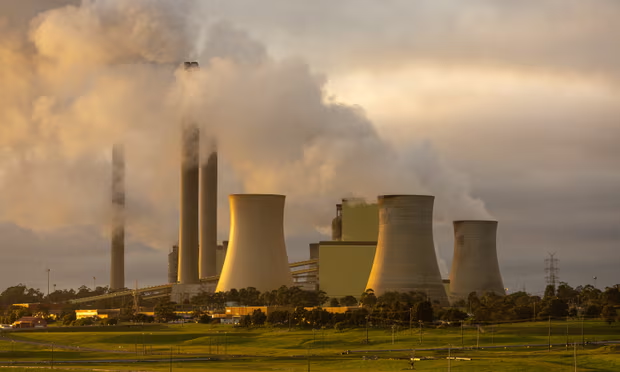Analysts have said that Australians’ annual household power bills could increase by hundreds of dollars, and up to $1,000, under a Coalition plan to slow the rollout of large-scale renewable energy and use more gas-fired electricity before nuclear plants are ready.
As Peter Dutton faced cross-party resistance to his announcement that he would go to the next election promising to eventually build seven nuclear plants, energy market analysts warned the Coalition’s proposal would probably lead to a significant rise in prices over the next decade, before a nuclear industry came online.
Latest reports suggest that few details of the opposition’s proposal have been released, but Dutton told a press conference on Wednesday that the Coalition would restrict investment in solar and windfarms and cover the electricity shortfall created as old coal-fired plants shut over the next two decades by using more gas power.
Analysts said gas was a far more expensive power source in the national grid than renewable energy or coal, and opening new gas basins was unlikely to change this as the country’s cheap gas had already been extracted. They said adding more gas power could also increase greenhouse gas emissions, accelerating the climate crisis.
Read also: Athletes say ‘hottest Games on record’ could threaten lives at Paris Olympics
Tristan Edis, a director with the firm Green Energy Markets, said the wholesale electricity price was set by the most expensive fuel being used at any given time. Those prices were “very high” – between $250 and $300 per megawatt hour of electricity, about three times the average price – whenever fast-start gas plants were used to complement cheaper coal, solar, wind and hydro energy.
Gas now provides less than 5% of electricity in the national electricity market, and is only called on when needed to meet demand.
Edis said if a Coalition government put a hold on investment in solar and windfarms and boosted gas power so that it was replacing coal and always setting the price, “you’re talking about an increase of $500 to potentially even $1,000 per annum for a household power bill”.
Dr Roger Dargaville, an associate professor and the interim director of the Monash Energy Institute, said it was difficult to predict what the Coalition’s announcement would mean for bills due to a lack of detail, but agreed the increase in an annual bill could be $1,000.
Story was adapted from the Guardian.
